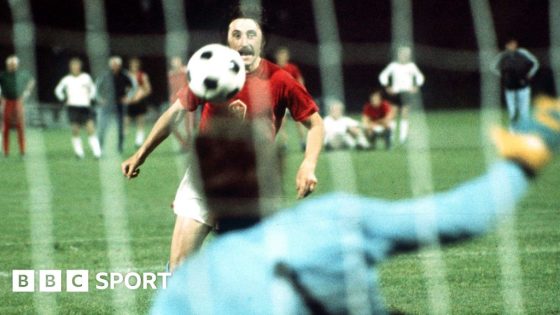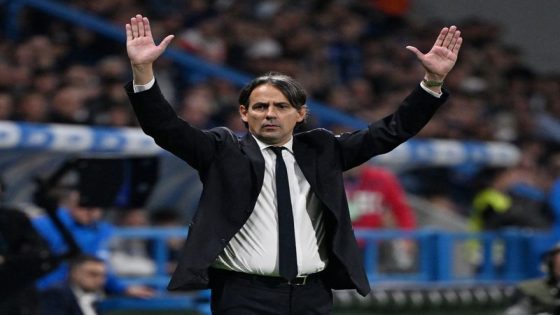Back home, Panenka had been involved in another, almost daily, penalty contest.
After training at his Prague club side Bohemians, Panenka and goalkeeper Zdenek Hruska would stay behind to practise spot-kicks.
It was a very personal duel. Panenka would have five penalties – he would have to score all five, Hruska would have to save just one. Whoever lost would buy their post-training beer or chocolate.
“I was constantly paying him,” says Panenka.
“So in the evenings I would think up ways to beat him – that’s when I realised that as I ran up the goalkeeper would wait for the last second and then gamble, diving to the left or the right.
“I thought: ‘What if I send the ball almost directly into the centre of the goal?'”
Panenka tried it. He found that introducing another possible penalty and some hesitation to Hruska’s mind meant he was winning more, spending less and still getting his post-training treat.
It could have stopped there and remained a piece of unseen showboating. But Panenka realised his new technique was more than that. He had unearthed a legitimate 12-yard tactic.
Over the next couple of years, he tested it on larger and larger stages. First, in training, then in friendlies and finally, the month before Euro 1976, against local rivals Dukla Prague in a competitive fixture.
Each time it worked and his conviction grew.
“I made no secret of it,” Panenka says.
“Here [in Czechoslovakia] people were well aware of it.
“But in western countries, in top football countries nobody was interested in Czechoslovak football at all.
“Maybe they were kept up with some results, but they didn’t watch our games.”
So, there was no laminated cheat sheet or whispered instructions from a backroom analyst for Sepp Maier.
As the West German goalkeeper crouched on his goalline and fixed his eyes on Panenka, he had only his own instincts to go on.
Maier’s team-mate Uli Hoeness had blazed the previous spot-kick over the bar. It was the first miss of the shoot-out, after extra time finished with the teams still locked together at 2-2.
Instantly the stakes became sudden death and sky high. If Panenka scored, West Germany were beaten.
Panenka’s run-up was long and fast. He seemed intent, like Hoeness, on thumping his instep through the back of the ball.
Instead, with the most important kick of his life, he fell back on his trusted trick. A deft tickle sent the ball floating down the centre of the goal. Panenka’s arm was aloft in celebration before it hit the net. Maier, flummoxed and failing, scrambled back to his feet, but only in time to shoot a rueful look at Panenka wheeling away in celebration.
Source Agencies



